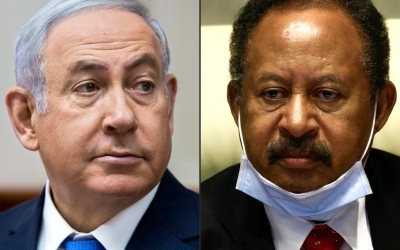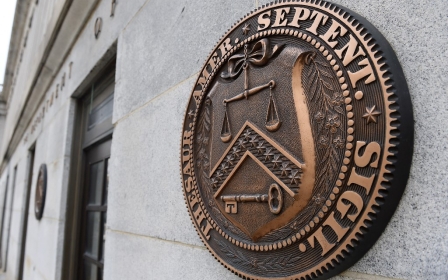Israel's Netanyahu set to visit UAE on Thursday

Israeli Prime Minister Benjamin Netanyahu is set to make his first trip to the United Arab Emirates since the two countries signed a normalisation deal in September 2020.
The visit on Thursday will take place less than two weeks before elections are held in Israel, the country's fourth in two years, with Netanyahu likely using the trip to highlight his credentials in building ties with Arab states.
New MEE newsletter: Jerusalem Dispatch
Sign up to get the latest insights and analysis on Israel-Palestine, alongside Turkey Unpacked and other MEE newsletters
According to reports in Israeli media outlets, Netanyahu will meet with Abu Dhabi Crown Prince Mohammed bin Zayed Al Nahyan at the city's airport.
He is then set to return to Jerusalem for talks with Hungarian Prime Minister Viktor Orban about Covid-19 vaccination efforts.
According to Axios reporter Barak Ravid, UAE officials had initially been hesitant about hosting the trip for fear of being perceived to interfere in the Israeli elections.
"The Emiratis sent signals that they'd rather postpone the visit until after the elections, but Netanyahu and [intelligence chief Yossi] Cohen pressed hard until the Emiratis agreed," tweeted Ravid.
"It's unclear whether he gave the Emiratis anything in return for the visit."
The UAE was the first Arab country since Jordan in 1994 to sign a normalisation deal with Israel.
Bahrain, Morocco and Sudan later followed suit, in a diplomatic flurry urged by then US President Donald Trump's administration.
Originally, Netanyahu had planned to tour the Gulf states in February, but Israel imposed travel restrictions to cope with a new surge in Covid-19 cases.
Middle East Eye delivers independent and unrivalled coverage and analysis of the Middle East, North Africa and beyond. To learn more about republishing this content and the associated fees, please fill out this form. More about MEE can be found here.





